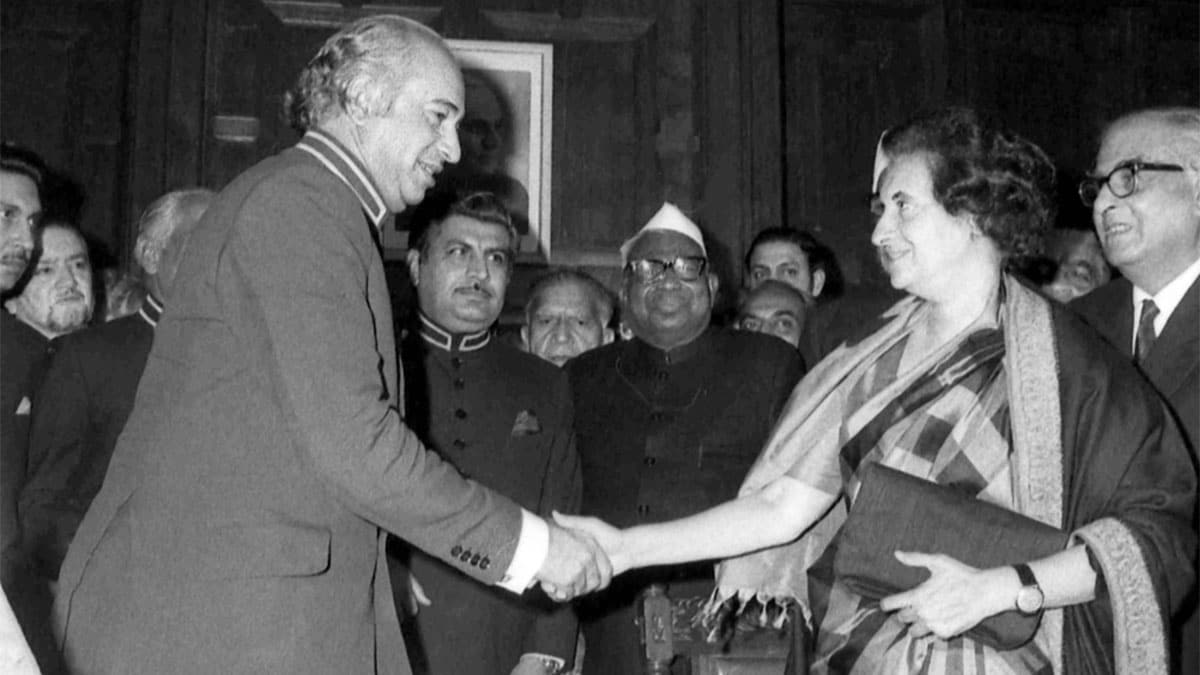India’s response to the brutal terror attack in Pahalgam that killed 26 people, including a foreign national, was deliberate and forceful. After uncovering evidence linking the attack to Pakistani-based terrorists, the Indian government unveiled a five-point action plan. It included suspending the Indus Waters Treaty, closing the Attari Wagah border crossing, cancelling visa exemptions, expelling Pakistani defence personnel, and reducing the strength of the Indian mission in Islamabad.
In reaction, Pakistan has now announced that it is placing the Simla Agreement in abeyance. This decision effectively abandons the most significant framework that has governed bilateral relations for over five decades. It removes even the minimal commitment to peaceful resolution and stable diplomatic engagement.

The implications are serious and one-sided. The Simla Agreement, signed in 1972 after Pakistan’s military defeat and the creation of Bangladesh, was not merely a peace treaty. It represented Pakistan’s formal acceptance of a bilateral framework for resolving disputes, including Jammu and Kashmir.
The agreement committed both countries to respect territorial integrity, avoid altering the status quo, and refrain from seeking third-party mediation. It was a foundational understanding that gave Pakistan a seat at the table, not through parity but through India’s choice to pursue stability. Discarding Simla is not a neutral act.
It removes the last remaining structure that kept the relationship from tipping into permanent hostility. Pakistan may have intended to signal defiance or create diplomatic leverage, but it has only weakened its own standing. The abeyance of Simla is not a blow to India.
It is an admission that Pakistan has no interest in dialogue, only in disruption. This move must also be read alongside Pakistan’s attempt to label India’s suspension of the Indus Waters Treaty as “water warfare.” That term has been used not to advance serious legal claims but to provoke international sympathy and distraction.
India upheld the Indus Treaty for more than sixty years. That includes periods of full-scale war, proxy terrorism, and diplomatic cold spells. The decision to suspend it after a mass civilian terror attack is not aggressive.
It is a message that terrorism will now come with consequences beyond condemnation. Pakistan has responded with noise but without substance. There is no legal or diplomatic principle that allows a state to support terror and then demand that treaties protecting its interests remain intact.
The rules Pakistan wants to discard are those that benefit India. The ones it wants preserved are those that shelter its strategic behaviour. That selective approach is now exposed.
The international community is unlikely to be moved. Most countries now view India as a stable partner and Pakistan as a chronic source of instability. That perception has not emerged from Indian lobbying but from Pakistan’s repeated inability to hold a consistent line on peace.
In abandoning Simla, Pakistan has confirmed that it cannot be trusted to uphold agreements, even those it once relied on to gain international credibility. This development also marks a turning point in India’s approach. For years, India maintained the posture of restraint.
It kept faith in agreements even when Pakistan showed little respect for them. That era is ending. A new posture is emerging, one based on reciprocity and strategic clarity.
If Pakistan chooses to abandon commitments, India will not be bound to pretend otherwise. The door to bilateralism was kept open despite provocation. Now, Pakistan has slammed it shut.
This is not a crisis for India. It is a moment of resolution. The loss of Simla frees India from the burden of an agreement that had become one-sided in practice.
It opens the space for a more assertive and interest-driven foreign policy. India can now evaluate its future choices without being held hostage to outdated understandings that the other side no longer honours. History may well judge this moment as a missed opportunity for Pakistan.
Instead of resetting ties through diplomacy, it has chosen to deepen confrontation. That choice will carry consequences. Simla was the last remaining cover that allowed Pakistan to appear interested in peaceful resolution.
Removing that cover lays bare the reality. It confirms what India has long said, that peace cannot be sustained when one party refuses to act responsibly. In diplomacy, what is torn up can sometimes be rebuilt.
But rebuilding requires trust, and trust must be earned. Pakistan has not just discarded a treaty. It has discarded the assumption that it wants peace.
It will take more than words to walk back from that. India will not chase a partner that keeps walking away. It will deal with this moment with the quiet strength of a country that knows it has options.
That strength comes not from loud declarations but from being rooted in principles that endure even when others falter. Aditya Sinha (X:@adityasinha004) is a public policy professional. Views expressed in the above piece are personal and solely those of the author.
They do not necessarily reflect Firstpost’s views..
Politics

Why Pakistan’s abeyance of Simla Agreement is a strategic mistake

If Pakistan chooses to abandon commitments, India will not be bound to pretend otherwise. The door to bilateralism was kept open despite provocation. Now, Islamabad has slammed it shut















